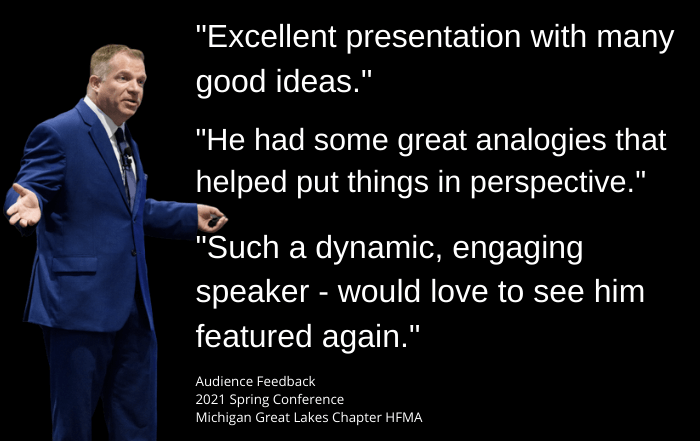 Rumors of a Great Resignation have some leaders saying, “Will my employees resign?” Fueled by the disruption of the pandemic, a record number of people may seek to work elsewhere.
Rumors of a Great Resignation have some leaders saying, “Will my employees resign?” Fueled by the disruption of the pandemic, a record number of people may seek to work elsewhere.
According to the Bankrate’s August 2021 Job Seeker Survey, 51% of the respondents say they are likely to look for a new job in the next year. If you’re an employer, that number may cause you a few sleepless nights, as losing experienced and talented people can hurt an organization, especially in the short term.
Right now, you may feel your retention options are limited, as you may not be able to boost salaries. Let’s look at this challenge in a different way, as the possibility of mass resignations may open the door for improved employee engagement. The process may only require small but powerful gestures. Consider these suggestions:
Will My Employees Resign if There’s a Vision?
Do people have an idea about the future of your organization? Or does it feel like a rudderless ship? You may have a vision in your mind but if you’re not communicating it, then you could be in trouble. People want to see the movie trailer.
Many leaders wait too long before sharing what they think the future will look like, good and bad. When there is a vacuum of information, employees will guess what will happen and they may guess incorrectly.
To improve retention and engagement, don’t delay talking about the future. It’s also okay to tell people if you’re dealing with uncertainty. Otherwise, a new job elsewhere may become the obvious choice.
Understood Career Paths
Do your employees feel like they are on a career path? If not, then the lack of a defined future may convince them to work elsewhere. At many businesses, career paths fall into three groups:
- Your job is the job and it’s the one you’ll have forever;
- When opportunities emerge, you’ll have a fair chance to move up in the organization;
- There aren’t opportunities to advance but if you work hard and succeed in your position, then you’ll be able to get a great job somewhere else.
Think about where people believe they fall on this spectrum because the answer will give you insight into whether people are already mentally packing up their desks.
And if the second and third options are true but not communicated, then is it any wonder that people are starting to look for empty boxes around the office?
Non-Monetary Benefits
If money is tight, think if there are non-monetary ways to thank your employees. Maybe down the road, people could earn a day off or the chance to come in or go home from work at a different time. Perhaps it’s something like a relaxed dress code.
Some have grown fond of working from home. You need to decide if that option can work in the future and in what form.
Why not create a committee to brainstorm options? Sometimes rewarding your employees is more about a gesture, rather than some sort of lavish reward.
Even if you’re not able to act on all of the suggestions, you’ve learned some important information about your team that you may be able to support in the future.
If you don’t do anything, then a job is likely judged by whether people feel the good things are getting better or if the bad things are getting worse.
Time for Change?
The pandemic may have accelerated inevitable employee turnover. While you hate to see a good employee leave, is there a chance the job may have evolved beyond their skills? This may be your opportunity to replace the position with someone who better fits current and future needs.
Did your business become complacent and could an influx of new people increase innovation? Stability and familiarity may produce limitations.
Sometimes a departure is good for the employee and the employer. You may not initially like the answer to the question, “Will my employees resign?” but you’ll understand it’s part of the growth and evolution of your business.






